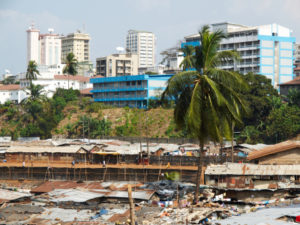Four (More) Ground Rules For Working With Reporters
I recently received an email from a reader working in Sierra Leone.
The reader saw my article, Eight Ground Rules for Working With Reporters, thought I missed a few important ones, and submitted four additional rules. They’re great.
Given the unique perspective that this reader is able to offer from the other side of the world, I wanted to share the list.
1. Going Off The Record: Don’t speak off the record unless you not only agree on definitions, but you trust the reporter not to publish it anyway. Some reporters, especially members of the parachute press corps, are willing to burn a source for a story.
Here in Sierra Leone, sources by default are anonymous – even opinion sources. In my case, I don’t express any opinion on any topic which could by the remotest possibility be mistaken for an official position. If I were to say “I like hip-hop music” (which I don’t), someone might ask “What is [your organization’s’] interest in hip-hop?” I exaggerate only slightly.
2. If You Can’t Discuss Specifics: You are right: never say “no comment.” Let me add my law: if you can’t talk about particulars, talk about process.
3. Speak For Yourself: This is one you missed: Don’t speak for any organization except the one for which you are a spokesman. Reporters sometimes encourage this, with questions such as, “Why do you think Government A is taking this position?”
I use a football (soccer) analogy. When the reporter kicks the ball out of the field, kick it back in with a statement such as, “I can’t speak for government A, but our position is…” Know what you want your focus to be, so that when the reporter goes out of bounds you can bring the interview back to your message.
4. The Spokesperson Needs a Briefing, Too: The spokesman should be briefed by the people at “carpet level.” It is a bad practice to have reporters coming up with information that takes the spokesman by surprise. (Editor’s note: The term “carpet level” comes from a former NFL football coach. He would deflect certain questions by saying they had to be answered by executives who were at the “carpet level,” since the offices of top management officials were carpeted. In contrast, his “office” – the field – was covered in grass.)
Final Note: The reader offered one additional thought worth mentioning, one that should make Western journalists feel grateful. Reporters in Sierra Leone are mostly untrained, usually graduates of secondary school (high school) but rarely college graduates. How much does a typical journalist make? $30 per month – if they’re one of the lucky ones.
Note: This reader requested anonymity, but I am grateful for the thoughtful email.
Is your executive team long overdue for a media training session? Please contact us to learn more about our customized media training workshops.





A question i would like to ask is what difference does cultural background make to how you handle reporters, if at all?
I assume that when someone in the UK is speaking to UK reporters in the UK there are certain “unspoken” rules that both side generally observe. However does this hold for journalists from Sierra Leone, India, China, South America, etc. All of these countries will have different cultural backgrounds and may treat you differently, or have different expectations?
[…] Ground Rules for Working with Reporters in Sierra Leone via @MrMediaTraining: […]